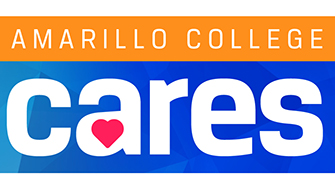The Mentorship Advantage
There are so many benefits of mentoring. It’s a great way to invest in the next generation or in high-potential individuals. It’s impactful both to the mentor and the mentee in many ways. I've had several mentors in my life and have learned so much from each one. If you've ever thought of finding a mentor or perhaps even being a mentor for someone else, here are a few things to consider.
What is Mentoring?
A mentor is someone who is a few steps ahead of you and can help or encourage you at a specific point in your career or life. I typically define mentors as those people in your life who are at a point where you’d like to be in the future. It could be a specific career, or just knowledge in a specific area in a career field. Mentoring can also center around quite personal subjects: marriage, parenting, or even spirituality.
The role of a mentor can vary depending on the situation. Depending on the needs and situation, mentors can be either formal. Schools and businesses often approach mentoring more formally.
If you don’t have access to a formal mentoring program, that’s fine. You can develop a mentoring relationship on your own. There’s no need to develop a formal program or wait for someone else to do it. You can find a mentor on your own.
Whether entering into a more formal mentoring relationship or if you’re looking for a mentor on your own, here are a few considerations.
Find a Mentor
If you’re thinking about finding a mentor, there are a few things to consider. First, what are your goals? What is it specifically that you want to learn from your mentor?
Next, do a little brainstorming and research. Maybe you already know someone you’d like to ask to be your mentor. How might you approach them? Maybe you’re unsure who you would ask. What then? How would you find someone to mentor you in a career field where you’re brand new? Maybe it’s someone who works in your company but in a different department. Another option would be to join a trade association or organization and seek to develop some mentoring relationships that way.
Also, think about what the mentor might get out of the relationship and not just what you want out of it. What would be the benefit for them? Why might they want to mentor you?
Finally, consider compatibility and chemistry. Do you enjoy being around this person? Are you able to ask questions and engage openly? True, any mentoring relationship may feel a bit awkward at first, but there should be a level of comfort fairly quickly. You might even consider meeting this person for coffee or lunch a couple of times before officially asking for them to be your mentor. That way, you can see if the compatibility is there or not without the pressure of any short- or long-term commitment.
Be a Mentor
On the other side of this relationship is the mentor. Maybe you feel like you have a lot of experience you want to share and want to invest in some up-and-coming leaders or high-potentials in your organization.
Using a similar approach above, you might be able to find a mentee that you really connect with and want to mentor.
- Set your goals or objectives
- Do some brainstorming and research
- Find a mentee through your network or trade group
- Meet for coffee or lunch before officially engaging
As a mentor, don't forget that learning is part of your process as well. There’s no need to feel that you always have to be on the giving end of this relationship. What might you learn from someone new in your industry or company? How do they see their career and the industry unfolding? What new ideas or technology might they help you understand better?
Mentoring is a great way to build a relationship with someone who you might not normally socialize with. Even so, mentoring is worth the time and the effort. If you’re considering it, go for it. You (and your future mentee) will be glad you did.


